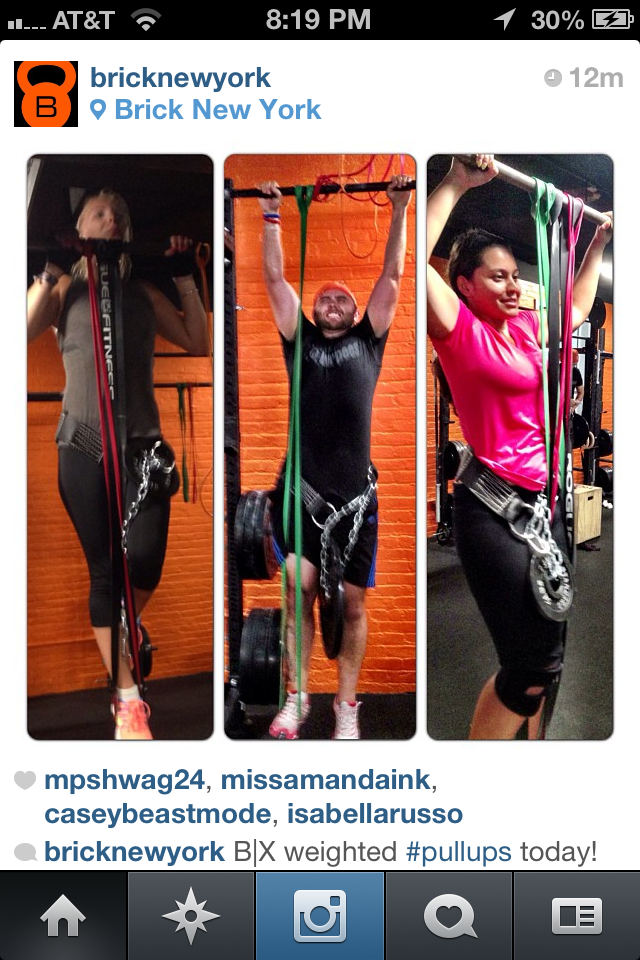I am not a CrossFit expert…yet. A lot of people come to me for insight on this lifestyle because of my posts/updates/pictures, personal stories and 2+ years being a part of this community. I’ve heard everything: - What CrossFit box (gym) should I go to? - How often should I train? - How much does it cost? - Will I throw up? …and everything in between.
Yes, I have a Level 1 Certification to be a CrossFit coach, but I don’t consider myself an expert just yet. My experiences training with different coaches, actually being a coach, dropping in to about a dozen or so locations in the U.S. and Argentina, gives me an advantage on what CrossFit is like. It also gives me a wide perspective on what works, what doesn’t and how I can implement my experiences to helping other coaches and affiliates out, but I have entirely so much more to learn and test out.
CrossFit has blown up. Competitions are now televised on ESPN 2 and there are over 3,100 affiliates just in the United States alone. Anyone with a Level 1 Certification can own a box and be a coach. This is a great yet scary notion. A lot of people have told me that they’re afraid to try CrossFit because of the horror stories they’ve heard – injuries, vomiting, can’t move body parts – really extreme stuff. I’m not saying that none of it is true, but there’s a high chance that it can be prevented, if you do your research.
A lot of CrossFit coaches are extremely great athletes – former and current collegiate athletes, games competitors, senior year football MVP (does that exist?), etc. – yet they don’t necessarily have the knowledge on how to train average working people. People that have 9-5 jobs that are sedentary for 40+ hours a week, people that sit at a computer all day and have pronated shoulders, moms (and dads) that are constantly picking up after their kids toys and are blowing out their backs because of it.
In my stint working as a personal trainer at Equinox (yes, as a CrossFitter I actually stepped into a gym), I quickly learned how little I knew about what it actually means to be a trainer and coach. For six weeks, I went through a crash education coarse covering topics on anatomy, kinesiology, workout progressions, program design, stretching and mobilizing. This led me to researching more on what actual experts and trainers who have been in this business for years were doing and suggesting to their clients. This also left me overwhelmed with how much information there is on the web – and how it all can be confusing because of conflicting advice.
In order to prevent injuries and to hopefully minimize the fear that people have when they think of CrossFit and be a well-versed coach of all things fitness, coaches must make it mandatory to be educated. Not just by going to seminars and getting mobility, nutrition, or corrective exercise certifications and be done with it. They need to make this a continuous effort to always be educating themselves on how to be better coaches as well as how to properly train average people.
I don’t believe that you need 100 different certifications or degrees to be an “expert.” Yes, those all help, but I believe that you need to continuously test out what you’ve learned. See what works and what doesn’t and actually know what you’re talking about. Talk to other trainers - not just CrossFit coaches - and see what works well for them or what didn't. Being confident in telling someone why they should train with you or join your box - not just because you have this CF coach title, not because you can deadlift 500 pounds or do 50 pull ups in a row – because you actually know your sh*t because you've done your research.
Disclaimer: I don’t think that CrossFit is the end all, be all way to working out or what it takes to be fit (whatever “fit” means to you). However, it’s worked for me, I’ve seen people transform into super-humans, and I recommend training in this type of fashion – HIIT (high intensity interval training) - to get you feeling sexy and strong if done in a proper way ;)





